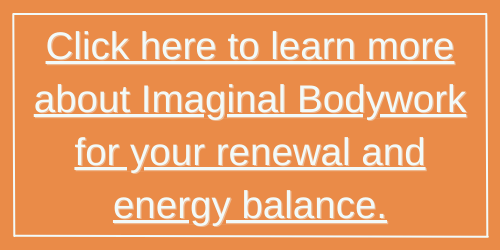How Movement has the Power to Reduce Nurse Burnout
Mar 17, 2022
Nurses and other healthcare workers have some of the most strenuous jobs around. They spend hours on their feet providing care for others and often overlook their health and physical activity levels. After spending 12 hours on your feet, the last thing you may want to do is exercise. Yet, a lack of exercise can lead to less energy.
The current healthcare crises, including the pandemic, increased drug overdoses, and mental health concerns, affect stress and energy levels. Combine this with short staffing, low resources, and inadequate supplies to care for others, and you get nurses and others who are frustrated, anxious, and burned out. You may find these factors challenging to manage, let alone consider your own physical activity needs.
Physical Activity Is Imperative for Nurses to Have a Healthy Balance
It’s important that our healthcare workers, such as nurses, have easy access to resources for their well-being. We can’t continue to have stressed-out healthcare providers taking care of sick people. This type of care is a recipe for disaster, creating an ill care system for providers and patients.
Physical activity is essential for good health. Nurses who participate in physical activity are more likely to reap good health benefits such as lower sickness absence, increased loyalty to their workplace, and better recruitment retention (NICE, 2008).
An Australian study on nurses found health benefits from achieving recommended physical activity and sleep levels. Adherence to beneficial lifestyle behaviors has important implications for the self-health of nurses (Henwood et al., 2008).
The study’s authors recommend that healthcare administrators design programs to reduce workplace burnout and aid workforce retention. This intervention is low-cost and can be connected with the facility or local fitness center.
Physical Activity is NOT the Same as Nurse Activities
Nurses are on their feet 10-12 plus hours per day. Nurses often remark that they are moving up and down hallways, lifting patients, etc. which should be equivalent to physical exercise. However, the time spent in a nursing activity is not exercise. In fact, twisting, bending, carrying, and pushing can stress the body. Often, the types of movement done in a particular setting are repetitive and lead to entrainment. These actions can cause more significant harm because only one kind of physical activity is being performed repetitively over a long period of time. You need more diverse activities such as strengthening, mobility, and flexibility to obtain complete health benefits. Being active may be suitable for general health and burning calories. Still, it does not offer the same health benefits of vigorous exercise, which is beneficial to your body, mind, and spirit.
Innovative Programs Needed for Healthcare Renewal and Balance
Our healthcare system is not looking out for the healthcare needs of its employees. Many organizations have Employee Assistance Programs or EAP, but most don’t provide for the physical activity needs of their employees. Exercise is the only intervention to reduce fatigue and provide more incredible energy. Some organizations may have an exercise facility, but it’s not easy to access, especially during chaotic times.
It’s time for new ideas to help restore and renew staff with their physical activity needs. Innovative programs are necessary that can blend into a busy work setting to promote renewal and balance for the nurse and other healthcare workers.

Consider gentle movement therapies that can be done in 5 minutes or less to cultivate peace, energy, and renewal. You deserve to have your energy renewal to provide care for others.
Holistic therapies can be used successfully by busy healthcare workers in clinical settings. These therapies are practical and beneficial to relieve stress and bring you back to a place of peace and balance.
References:
Henwood, Tim, Tuckett, Anthony, El-Bagdadi, Nadja, and Oliffe, John (2015). Connecting leisure time physical activity and quality of sleep to nurses health: data from the e-cohort study of nurses and midwives. Journal of Nursing and Care 4 (3) 1000254.1-1000254.9. https://doi.org/10.4172/2167-1168.1000254
Kirzinger A., Kearney A., Hamel L., Brodie M. (2021). The toll of the coronavirus pandemic on health care workers. The Washington Post Frontline Health Care Workers Survey.
NICE - Endorsed Clinical Guidelines 2008/2009 - Health-ni ...
Reis, D (2021). Harnessing the power of the Imaginal Body for healing.
This blog is provided for educational and informational purposes only and is not medical, mental health, or healthcare advice. Although Debra Reis is a Clinical Nurse Specialist licensed in the state of Michigan, she is not acting in that capacity here. Debra Reis is acting as a holistic educator and consultant, not as a licensed medical health professional or in her professional capacity as a Clinical Nurse Specialist. The information presented here is not intended to diagnose, treat, heal, cure or prevent any illness, medical condition, or mental or emotional condition. Working with us is not a guarantee of any results. Debra Reis, Wellness Services, LLC owns all copyrights to the materials presented here unless otherwise noted.
Stay connected with news and updates!
Join our mailing list to receive the latest news and updates.
Don't worry, your information will not be shared.





